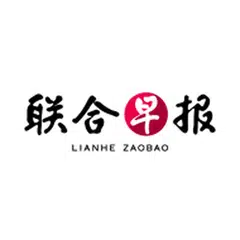Universal Studios Beijing: With 5,000 years of culture, can China create its own theme park?
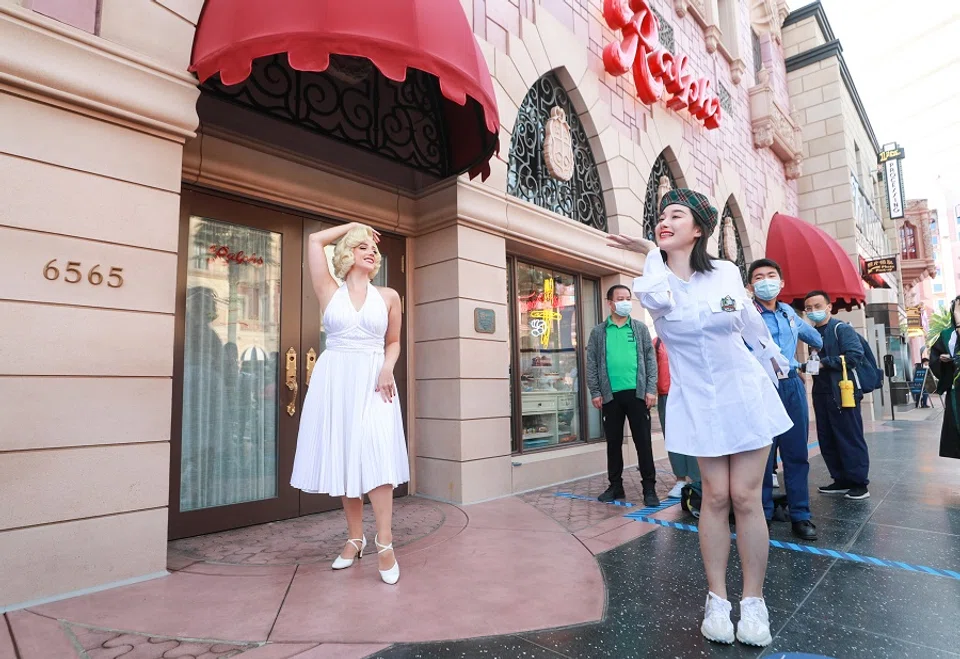
Frosty China-US relations have not cooled the Chinese appetite for US cinema. Tickets to Universal Studios Beijing sold out within one minute, ahead of its opening on 20 September. Crowds swarmed in on a cloudy, rainy Mid-Autumn Festival eve, some dressed in Harry Potter costumes.
But while some Chinese are willing to queue 90 minutes for the "Harry Potter and the Forbidden Journey" ride, others remain uninterested.
One Weibo user ranted: "With China's 5,000 years of culture, can we not come up with a popular theme park?"
Other netizens agreed. "This is pandering to other countries!"
"Not interested in US culture!"
"This is cultural erosion!"
On the night of 20 September, Global Times editor-in-chief Hu Xijin shared his view on Weibo that the advent of Western theme parks in China, like Disneyland in Hong Kong and Shanghai - and now Universal Studios Beijing - shows the rise in China's economy and the people's spending ability: "As China progresses and the people's perspective widens, cultural confidence is also rising. The appeal of Western cultural markers in Chinese society has passed its peak of the past few years. However, some Western cultural markers still have many fans in China, and Chinese society is generally friendly towards them."
Hu believes that the continued popularity of Western theme parks in China reflects the openness and friendliness of Chinese society to foreign cultures. "This is the general attitude of acceptance in Chinese culture," he said.
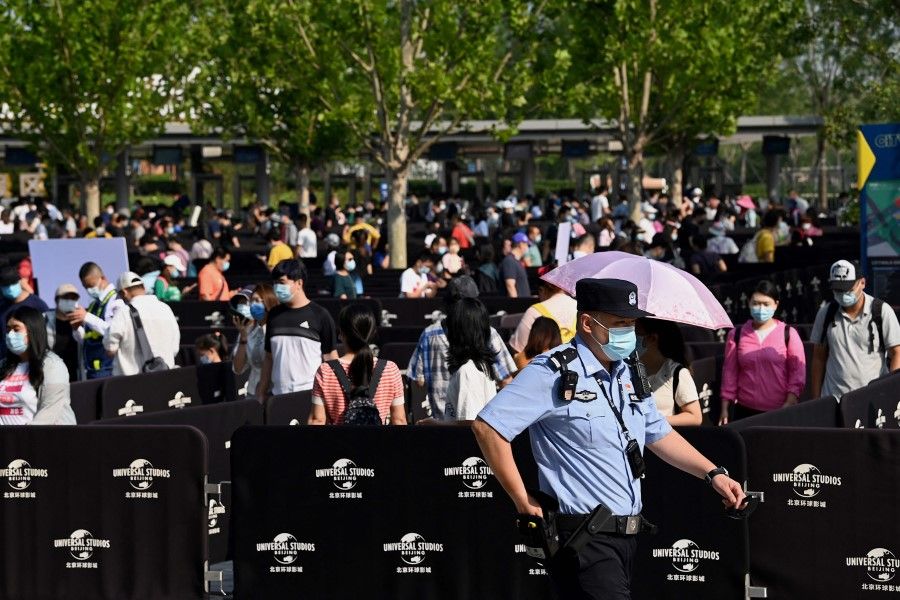
However, many objections and even criticisms appeared in the comments section of the article. Some netizens chided Hu for his vacillating positions and ridiculed him for suffering from a split personality. One netizen questioned: "Isn't this the rubbish US imperialist culture that you decry every day?" Another netizen riffed on the Chinese names of Universal Studios (环球影城 huanqiu yingcheng) and Global Times (《环球时报》huanqiu shibao) and mockingly asked: "Is Universal Studios run by the Global Times?"
Universal Studios is part of US popular culture, inextricably linked with the Hollywood entertainment industry fed by US capitalism. And the export of culture as driven by the global spread of US capital has allowed Universal Studios to become a renowned international brand. The enthusiasm of the Chinese public for this is reflected in visitor numbers, which seem unaffected by the worsening China-US relations or the wave of nationalism in China. As for whether this shows the "acceptance in Chinese culture", or simply the appeal of characters and stories of US blockbusters, opinions would differ.
How Universal Studios Beijing came to be
The first Universal Studios opened in Hollywood in 1964. Initially, it was meant to allow tourists to visit studios and sets, but evolved into today's theme park, complete with entertainment facilities and hotels.
Many visitors to the US went there out of curiosity, and the company's slogan was "The Entertainment Capital of LA". As Hollywood movies went global, so did the Universal Studios brand. The Universal Studios in Osaka and Singapore were opened in 2001 and 2011 respectively.
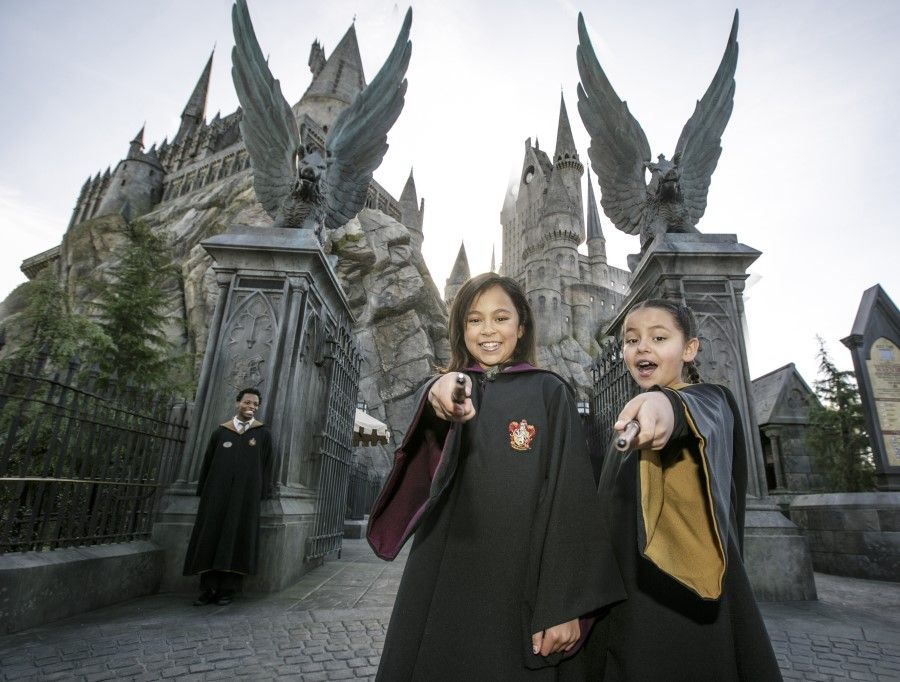
According to The Beijing News, around 2000, Beijing felt the need to develop its entertainment tourism, and bringing in a large-scale theme park from overseas is the most effective way to do it.
In 2001, the year China joined the World Trade Organization (WTO), negotiations for a Universal Studios in Beijing were in earnest. In October that year, the Universal Studios delegation signed a letter of intent with Beijing, and engaged in a lot of market surveys and planning. In late 2002, the feasibility study for the theme park was completed, and the following year, the proposal for the project was submitted to the State Development Planning Commission (now the National Development and Reform Commission). However, macro policy adjustments meant a five-year delay in approval.
In 2008, the Beijing municipal government decided to make the Universal Studios project a key project to boost Beijing's economy and tourism industry after hosting the Olympics that year, and made another submission to the State Council, but the project was postponed again. It was not until another five years later, in June 2013, that the State Council agreed to Beijing's intention to build a Universal Studios.
...the State Council wanted to reduce the scale of investments in the project and add more "Chinese elements".
Yet another five years later, construction finally began on Universal Studios Beijing on 27 July 2018. Why was this project so ill-fated? The authorities did not give a clear answer. However, according to archina.com, Zhang Gong, former director of the Beijing Municipal Development and Reform Commission said the State Council wanted to reduce the scale of investments in the project and add more "Chinese elements". Also, according to Beijing Daily, in a conversation on 16 September between Beijing party secretary Cai Qi and Brian Roberts, chairman and CEO of Comcast Corp Group - which owns Universal Studios - Cai also said he hoped for more Chinese elements in the park.
Which Chinese elements to include?
According to the media reports mentioned above, prior to and following the establishment of Universal Studios Beijing, Chinese officials have twice proposed the addition of Chinese elements to the theme park. So what are the Chinese elements that have been added?
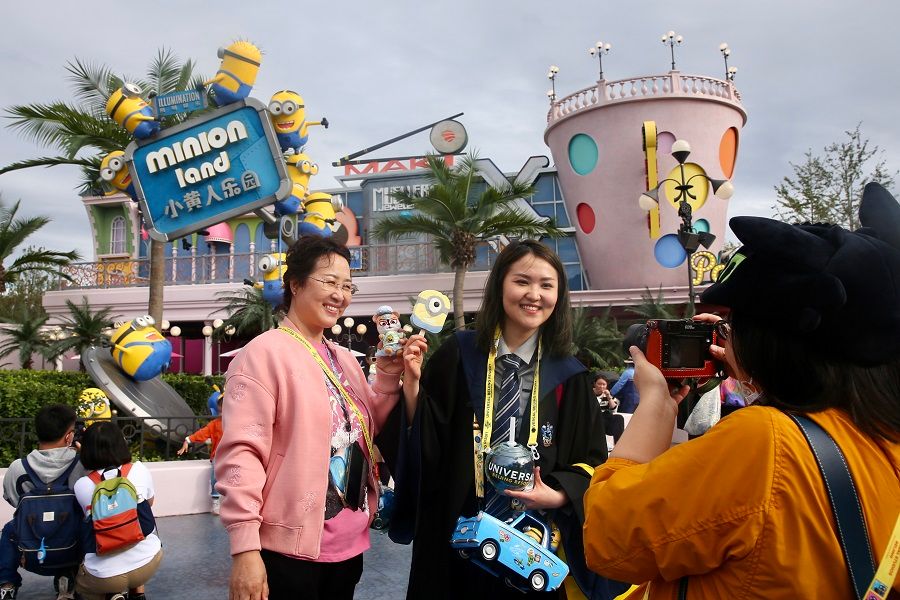
The introduction on the park's official Weibo account states that park facilities and attractions reflect China's longstanding cultural heritage. Based on the descriptions on its official website, the theme park boasts seven themed zones: The Wizarding World of Harry Potter, Transformers: Metrobase, Kung Fu Panda Land of Awesomeness, Hollywood, WaterWorld, Minion Land, and Jurassic World Isla Nublar.
While "panda" and "kung fu" can be said to be Chinese elements, the American animated film series "Kung Fu Panda" is essentially Hollywood's interpretation of Chinese culture. It is aimed at breaking into the Chinese market while at the same time staying relevant to the American market by combining "panda" and "kung fu", Chinese emblems which are familiar to an American audience. The film was even criticised and boycotted by some when it first premiered in China.
Other Chinese elements can be found in the details of some of the themed zones. For example, a series of Chinese Zodiac products is available for sale at Minion Land, and there is a Chinese culture exhibition area at Transformers: Metrobase. Actually, it is common for any multinational corporation to include local touches as part of their localisation strategy. For example, McDonald's incorporates local food flavours in the menus of their outposts around the world, but the fast food culture of hamburger and fries is still the main theme in each restaurant. Besides, local culture is only added as icing on the cake - it cannot take precedence over the main theme. Otherwise, the offering would not be as attractive as it originally was.
...if it looked exactly like a street in Beijing, why would the Chinese still be willing to head there for a vacation?
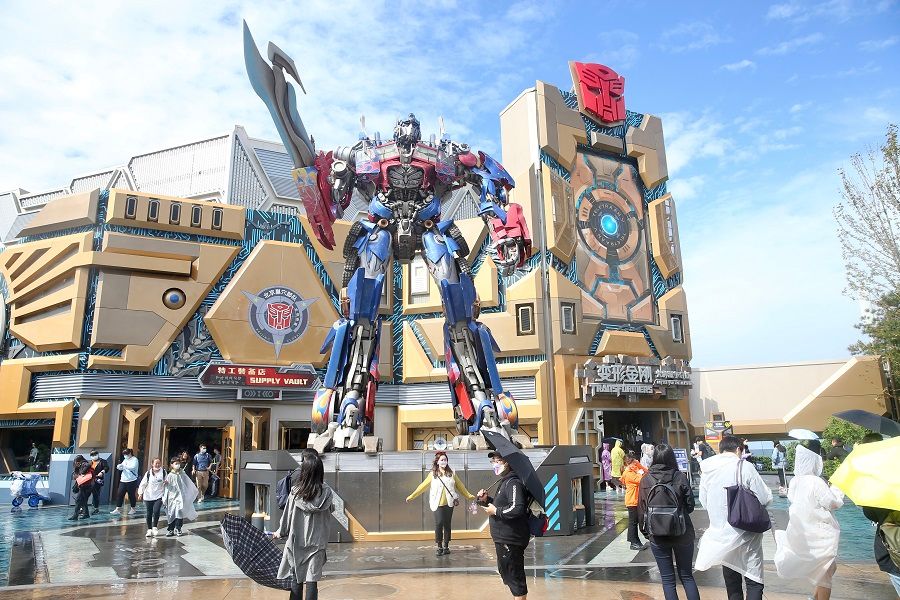
Liu Simin, vice-president of Tourism at the Beijing-based Chinese Society for Future Studies said that while Universal Studios represents the best of American entertainment culture, it more importantly meets the spiritual needs of modern people in a globalised world. The addition of Chinese elements must be nuanced. Otherwise, if it looked exactly like a street in Beijing, why would the Chinese still be willing to head there for a vacation?
Liu added that whether such Chinese elements are accepted by the target audience will be seen by how they vote after the park is opened. While voting results remain to be seen, based on online discussions and Chinese media reports, the most popular themed zone at the moment is The Wizarding World of Harry Potter.
A true theme park with Chinese elements in the future?
Wanda Group Chairman Wang Jianlin once said that it is improper for a Universal Studios theme park to be built in Beijing as it is China's capital and cultural hub. He explained that since a Disneyland theme park has already been built in Shanghai, building another Universal Studios theme park in Beijing would imply that the cultural projects of two major cities in northern and southern China are dominated by American elements. Even if these theme parks performed well, it would be meaningless because they are not China's own creations.
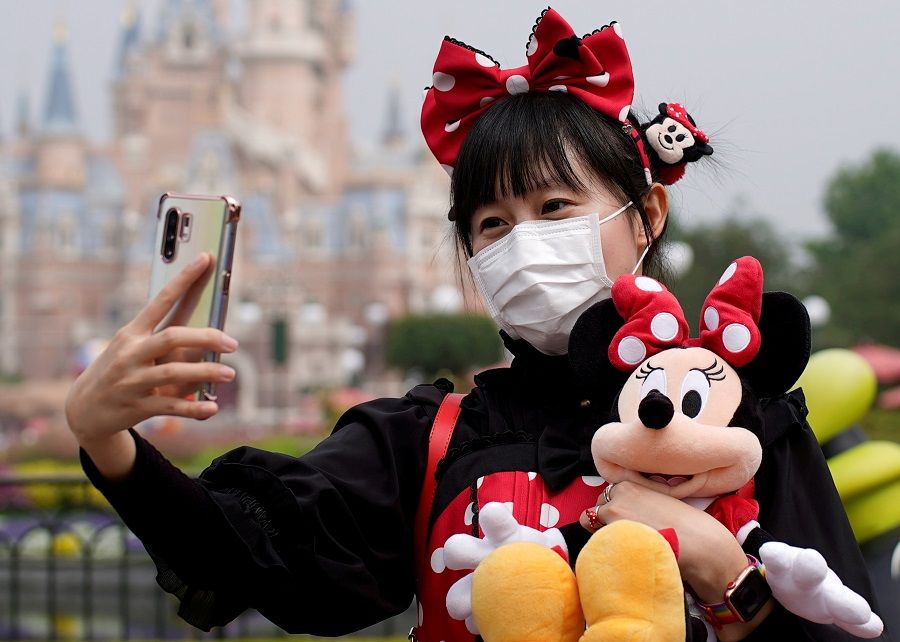
At a China Central Television programme on 22 May 2016, Wang said that Disneyland should not have come to China, boldly declaring that Wanda would "make Disney's China venture unprofitable in the next 10 to 20 years".
But facts have proven that following Shanghai Disneyland's official opening on 16 June 2016, it became profitable after only a year, which is a rare occurrence for Disneyland theme parks around the world. On the other hand, the Wanda theme parks that Wang has invested huge amounts of money in to crush Disneyland have all but vanished.
Sohu user ILSclub (我爱学习俱乐部) analysed that Disney attracts its audience based on the strength of its intellectual property (IP); its five major entertainment sectors of media networks, theme parks and resorts, film and television, consumer goods, and interactive entertainment construct an ecosystem that is mutually enhancing and adds value to these IPs. This applies to Universal Studios as well.
Analysts think that the management heads of Chinese theme parks sorely lack a good understanding of a theme park's core elements and cultural connotations. In particular, they do not pay enough attention to IP.
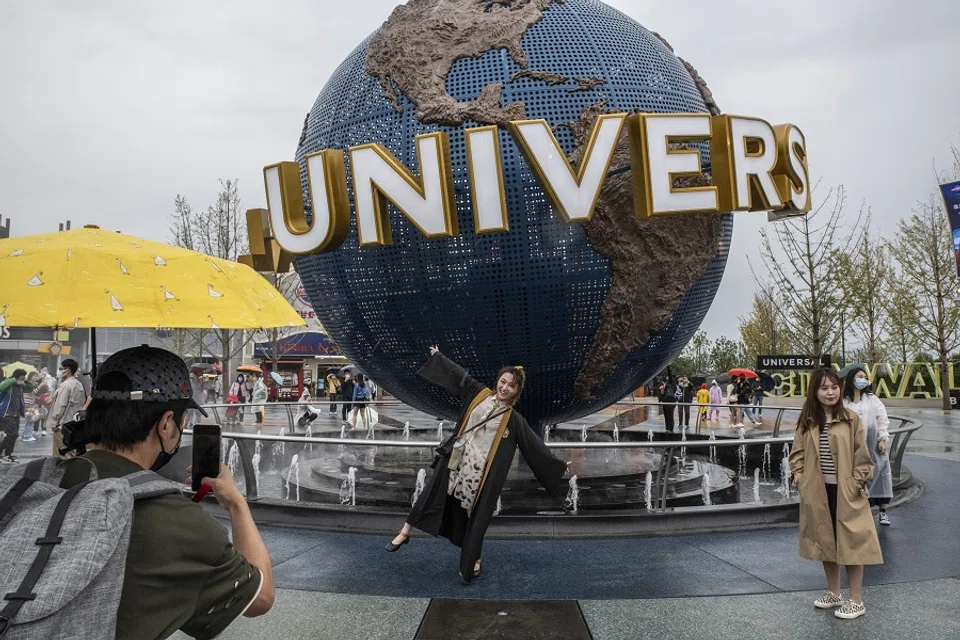
Analysts think that the management heads of Chinese theme parks sorely lack a good understanding of a theme park's core elements and cultural connotations. In particular, they do not pay enough attention to IP.
Thus, original and high-quality content coupled with a complete and effective industrial chain is the foundation for the success of theme parks. Not forgetting support from good policies and the injection of capital, as well as cooperation between industries to achieve synergies and common development. China has a strong and rich cultural heritage, and some Chinese animation and comics have already achieved outstanding results. But perhaps more time is needed to develop a world-class theme park dominated by Chinese elements.
Now that Chinese kids have to cut back their time spent on playing online games and Douyin, and some of their favourite celebrities have disappeared from public view, perhaps they can make their parents bring them to Universal Studios Beijing instead.
Related: A metaverse with Chinese characteristics? | Mulan: The people-pleaser that ended up offending all? | Portrayal of women in Chinese dramas getting more westernised? | When the virtual world is fairer: Why more youths are addicted to gaming | Celebrities scrubbed from the Chinese internet: Victims of China's social revolution?
